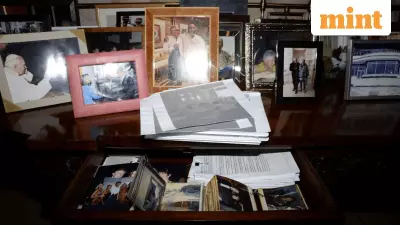
In a solemn development in the ongoing Israel-Hamas conflict, Israeli authorities have confirmed the recovery of another hostage's body that had been buried by Hamas militants in the Gaza Strip.
The retrieval operation marks the latest in a series of similar recoveries as Israeli forces continue their military operations within Palestinian territory. The identification process was conducted through meticulous forensic examination, though specific details about the victim's identity remain undisclosed for privacy reasons.
Ongoing Recovery Efforts
Israeli defense officials have emphasized their commitment to locating and returning all citizens held captive or killed during the conflict. This most recent recovery underscores the complex nature of military operations in densely populated urban areas like Gaza.
"The pain of these discoveries is immeasurable, but we remain determined to bring every Israeli citizen home," stated a military spokesperson during a press briefing.
International Response and Humanitarian Concerns
The incident has reignited discussions about humanitarian considerations in conflict zones. International organizations have called for renewed efforts toward ceasefire agreements and improved conditions for civilians caught in the crossfire.
Diplomatic channels remain active as mediators work to bridge the gap between conflicting parties. The recovery of deceased individuals adds another layer of complexity to already tense negotiations.
Background Context
The Israel-Hamas conflict has seen numerous casualties on both sides since its escalation. The practice of burying victims in Gaza has complicated recovery efforts, requiring sophisticated intelligence and excavation operations.
Israeli forces have developed specialized protocols for these sensitive recovery missions, often working under dangerous conditions to retrieve remains while minimizing additional risks to military personnel.
As the situation continues to evolve, families of missing individuals maintain hope for closure while the international community watches closely for signs of diplomatic progress toward lasting peace in the region.





